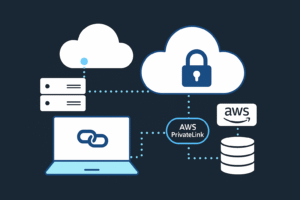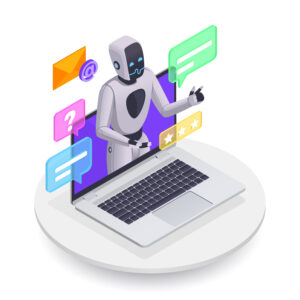The Role of AI in German Industrial Software Applications
Germany has been a world leader in industrial innovation for many years. Its dedication to engineering excellence, especially in automotive,...

Germany has been a world leader in industrial innovation for many years. Its dedication to engineering excellence, especially in automotive, manufacturing, and automation, is the benchmark globally. Artificial Intelligence (AI) is now taking center stage in boosting industrial software applications in Germany. From predictive maintenance to intelligent factories, AI is assisting German industries in streamlining processes, enhancing efficiency, and leading the way in Industry 4.0.
In this blog, we explore how AI is transforming German industrial software, the industries that are affected most, and what the future holds for companies adopting these technologies.
How AI is Revolutionizing Industrial Software in Germany
Artificial Intelligence is no longer a futuristic concept. In German industries, it is a real-world tool transforming operations at every level. One of AI’s key roles is improving decision-making by analyzing massive data sets much faster than any human team could. German manufacturers are leveraging AI to monitor equipment, predict failures, and streamline supply chains.
In industries such as automobile manufacturing, AI-based software facilitates predictive maintenance. This makes machines diagnose faults prior to the point of causing expensive breakdowns. Production lines thus have fewer shutdowns, and maintenance costs decrease substantially. Firms save millions of dollars each year through AI solutions that make operations more efficient.
Another significant influence of AI in the industrial scenario in Germany is optimizing logistics. AI algorithms can foresee supply and demand trends better, enabling manufacturers to control inventories more efficiently. This saves not only money but also promotes environmental sustainability through reduced waste.
In addition, German firms apply AI to improve product quality with automated quality control systems. Machine learning models and computer vision can identify slight defects in produced goods that may be overlooked by human inspectors. As a result, customer satisfaction increases, and firms uphold their reputation for high-quality standards.
Key Sectors That Benefit from AI Integration
Automotive Industry
Germany’s automotive industry has adopted AI more than any other. From autonomous driving tech to intelligent manufacturing plants, AI pervades every aspect. Brands such as BMW, Volkswagen, and Mercedes-Benz are pouring money into AI to remain at the forefront.
AI-enabled production robots are able to modify to adapting assembly lines and tailer production in real-time. Predictive analytics also makes sure parts are produced with minimal waste and maximum efficiency.
Manufacturing and Engineering
Production in Germany greatly relies on AI-based custom software solutions. Intelligent factories are now not uncommon, where AI regulates anything from the operation of machinery to energy usage. Production becomes efficient, quicker, and safer in the process.
AI also ensures that German producers meet stringent environmental and safety regulations. Intelligent surveillance systems monitor adherence to standards without continuous human monitoring.
Logistics and Supply Chain Management
AI technology rationalizes Germany’s renowned complex network of logistics. By automating routes and studying freight patterns, logistics firms can dramatically reduce expenses and enhance the speed of deliveries.
Warehouses, with AI-driven robots now part of their setup, can sort, package, and send merchandise with unbelievable speed and accuracy. It eliminates errors and speeds up the supply chain.
The Role of AI in Driving Industry 4.0 in Germany
Germany’s Industry 4.0 initiative is focused on establishing highly flexible, efficient, and automated production settings. AI is the foundation for this vision.
AI-driven smart factories allow machines to talk to one another, make decisions on their own, and optimize the whole production process without any intervention from humans. Sensors gather and provide real-time data to AI systems, which process the information to initiate maintenance requests, production adjustments, or energy-saving mechanisms automatically.
Another innovation, Digital Twins, has gained traction. These AI-powered virtual models of physical assets allow companies to simulate changes without risking actual operations. By predicting outcomes accurately, businesses can plan better and innovate faster.
Even workforce management benefits from AI. Smart systems monitor workforce productivity, schedule shifts efficiently, and predict labor shortages. In doing so, companies can maintain optimal staffing levels without overworking employees or leaving operations understaffed.
All these developments are nudging German industries towards levels of efficiency and sustainability never seen before. AI is not only optimizing processes—it is transforming business models altogether.
Challenges Confronting AI Adoption among German Industries
Even with the bright future, incorporating AI into industrial uses is not without its challenges. One of the biggest hurdles is data privacy. There are stringent regulations such as the GDPR in Germany, and AI systems must process sensitive information responsibly to remain compliant.
The other issue is the skills gap. Although Germany boasts an excellent workforce, AI-related skills are still in short supply. Firms struggle to identify or develop professionals with expertise in machine learning, data science, and AI system integration.
Also, the incorporation of AI into old industrial systems can be costly and technically challenging. Most German producers have machines that are decades old. Upgrading these with contemporary AI features involves a lot of investment and advanced customization.
Finally, ethical issues regarding AI displacing human workers cause reluctance among industries and employees alike. Even though AI provides automation and efficiency, innovation and workforce preservation are a tricky balance to achieve.
Future Trends: What Lies Ahead
In the future, the impact of AI on German industrial software applications will continue to intensify. One such trend is explainable AI (XAI). Sectors want transparency in AI-driven decisions, particularly in controlled settings such as manufacturing and logistics. XAI guarantees that organizations know how AI arrives at its suggestions, enhancing trust and regulatory compliance.
Edge computing is another trend worth mentioning. Rather than routing all data to the cloud, edge AI computes data nearer to the source, e.g., machines on the manufacturing floor. This minimizes latency, maximizes real-time decision-making, and adds security.
Sustainability will continue to be a priority. German businesses seek to lower their carbon footprint, and artificial intelligence-based energy management systems will become important tools. AI is able to optimize energy consumption, anticipate equipment failure that squanders resources, and recommend greener production techniques.
In healthcare manufacturing, AI will allow for even more accurate manufacture of medical devices and pharmaceuticals. AI-powered personalized manufacturing will produce products that cater to individual specifications.
As AI technologies advance and are made more affordable, even German small and medium-sized enterprises (SMEs) will embrace industrial AI solutions. A custom software development company in Germany can offer customized AI software to enable SMEs to compete with large companies, making the playing field more even.
Conclusion
Germany’s industrial economy is experiencing a technology revolution, and Artificial Intelligence is the core of it all. From improving production processes to streamlining logistics and enhancing product quality, AI-powered software is raising the bar.
It may pose difficulties in terms of data safety, employee skills, and integration expenses, but the advantages greatly surpass the obstacles. By adopting AI innovations, German industries not only ensure their international leadership but also build a sustainable and effective future.
Firms ready to invest in AI now are setting themselves for success in the long term in tomorrow’s industrial future. With industry and technology increasingly intertwined, the world will increasingly look to Germany as the leader of intelligent, AI-facilitated industrial greatness—with firms such as Appinventiv paving the way for innovation.






